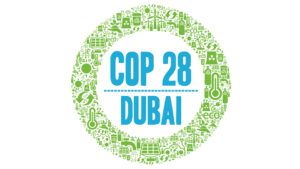September has been a rocky month for climate action, with COP28 host the UAE being heavily criticised over human rights.
On 21 September the country was added to the Civicus Monitor Watchlist of countries with declining civic freedoms, with activists, journalists and civil society groups severely repressed and at further risk ahead of the COP28 climate change negotiations to be hosted in Dubai in November and December.
The UAE is already a tightly controlled state where authorities crush dissent using imprisonment, torture, intimidation and harassment. With the COP28 climate conference in Dubai, there is an acute threat of further attacks on basic rights, Civicus said.
“The UAE has long been one of the world’s most repressed countries, but things are set to get even worse before and during COP28,” said Sylvia Mbataru, Africa and MENA researcher at Civicus. “When the world’s attention focuses on Dubai, the UAE’s thin-skinned leaders are likely to try to protect their reputations and control the narrative at all costs.”
Naked greed
Harsh words from the UN on 20 September. António Guterres, the secretary general of the United Nations, warned humanity has “opened the gates to hell” by allowing the climate crisis to worsen, at a climate summit of leaders in New York that railed against the fossil fuel industry but where many of the biggest carbon-emitting countries failed to appear.
The world is “decades behind” in the transition to clean energy, Guterres said. “We must make up time lost to foot-dragging, arm-twisting and the naked greed of entrenched interests raking in billions from fossil fuels,” he said. Some fossil fuel companies were engaged in a “shameful” attempt to hinder the transition, he added.
Richer countries need to get to net zero as close as possible to 2040, Guterres said, but are currently way off schedule, according to UN analysis. They also need to make good on promises to hand climate funding to poorer nations.
But even amid these warnings UK prime minister Rishi Sunak faced heavy criticism on 20 September for announcing a major U-turn on the government’s climate commitments.
The PM pushed back a ban on new petrol-only cars from 2030 to 2035 and announced delays to several other key green policies, including the phasing out of gas boilers, prompting furious condemnation from the automobile and energy industries who had been ramping up changes to their production lines.
Day of health
On 18 September heads of state and leading experts in health and climate gathered for the beginning of New York Climate Week to discuss critical concerns around the intersection of climate and health priorities ahead of the COP-28’s first-ever ‘day of health’.
The central theme of the event underscored that the climate crisis is, unequivocally, a health crisis. Climate change, it was expressed, poses an imminent and severe threat to human health, affecting nearly half of the world’s population today, not in some distant future.
WHO called on ministers of health to raise their voices for health as the driving force behind climate action, leading by example with climate-friendly healthcare systems, and advocating for climate finance that safeguards our well-being.
“The most compelling reasons for climate action are not in the future – they’re right here, and right now,” said Dr Tedros Adhanom Ghebreyesus, WHO director-general.
He added: “The climate crisis drives the extreme weather that is taking lives around the world, it fuels the spread of infectious and noncommunicable disease, and it undermines food security. I am grateful to the COP28 UAE presidency for choosing health as a priority area, and for designating 3 December as a day dedicated to health.”
